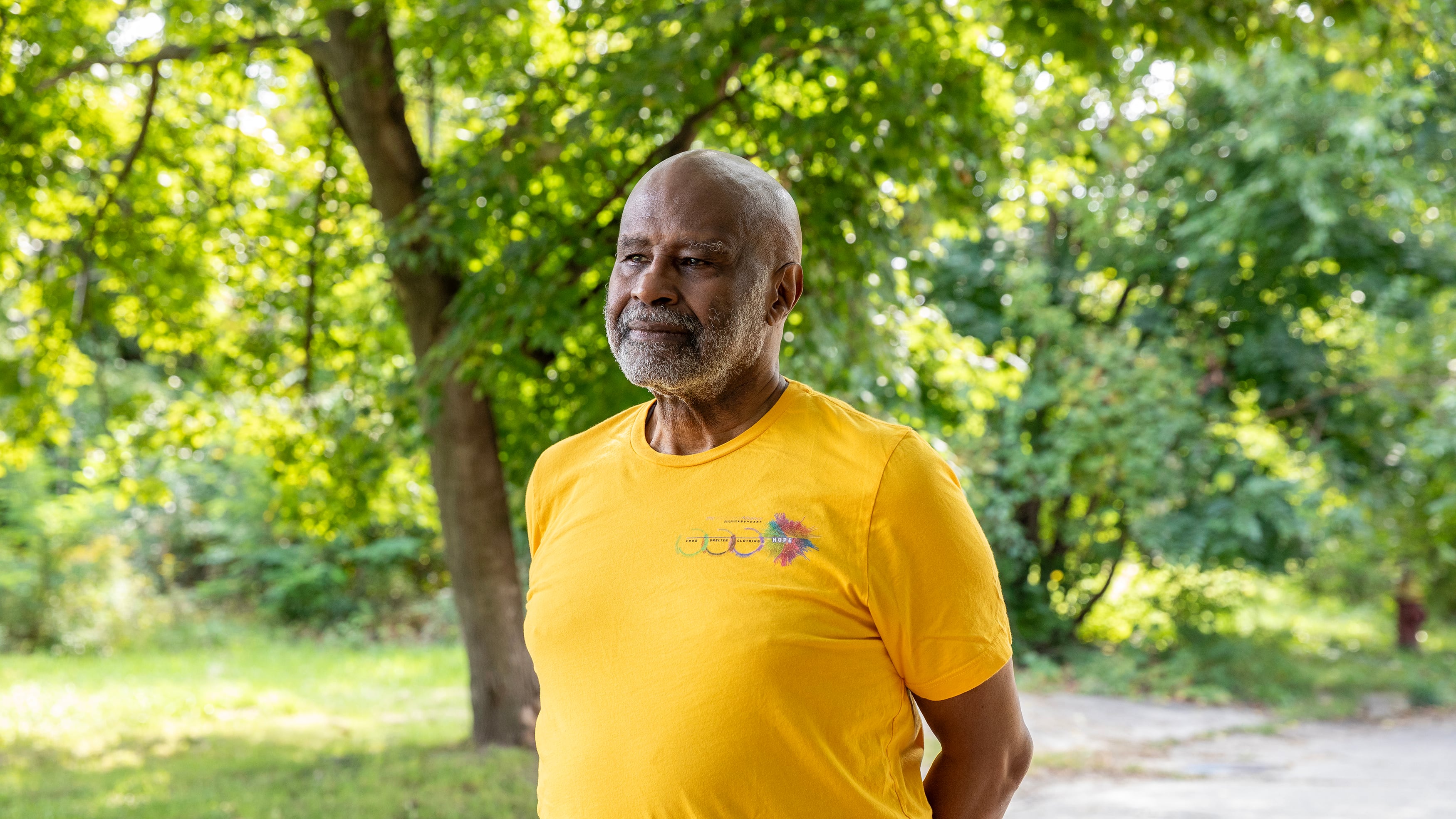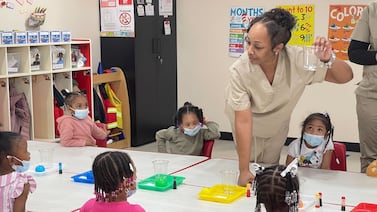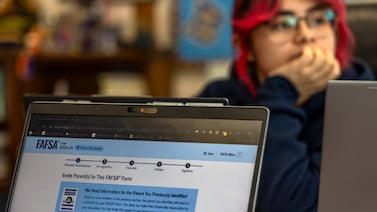Community groups have been working with Detroit school communities on absenteeism for more than a decade. Despite their limited staff and budgets, they help fill gaps in the strategies schools and the district use to improve student attendance, focusing on specific barriers, such as inconsistent transportation, food insecurity, and lack of clean clothes.
Every School Day Counts, a coalition of community organizations and schools across the city, has been at it since 2012. Early on, Rev. Larry Simmons and other church leaders involved in the group volunteered to drive students to and from school.
Lawrence Hood partnered with the group on transportation services when he was principal at Detroit Innovation Academy, a charter school on the city’s west side.
“We had scholars that were missing 10 days before the second quarter even began,” Hood recalled. Later on, he added, the school recruited workers from the Michigan Department of Health and Human Services to provide medical and dental services to families who regularly missed school for appointments.
From 2012 to 2014, when Hood ran Detroit Innovation Academy, the chronic absenteeism rate declined by about five percentage points, to 51.5%.
Urban Neighborhood Initiatives, a nonprofit based in Southwest Detroit, partnered with area schools to offer a range of after-school programs, including gymnastics, cooking, gardening, and art classes, said Alejandra Gomez, an education director at UNI. The group is now part of Every School Day Counts.
UNI spent years tracking attendance data across its after-school and youth employment programs and now has a team of 10 AmeriCorps members mentoring chronically absent students and assisting families in finding resources.
“Many of the parents have shared that it’s really difficult for them to pick up their kids right after school since they’re working, and so being able to have the opportunity to be able to pick them up a little bit later has been good for them,” Gomez said.
John Broad, founder of Helping Kids Go To School, sought out volunteers from Detroit-area churches to work as “attendance coaches,” mentoring families struggling to get their kids to school. The strategy, he said, drew inspiration from a similar concept in Hawaii.
From 2019 to 2021, the mentoring program helped Mackenzie Elementary-Middle School reduce its chronic absenteeism rate from 70% to 47.7%.
Become a Chalkbeat sponsor
The following year, though, the rate surged to 84%, amid strict quarantine requirements. Broad said the group is eager to dig deeper into its work at Mackenzie and other schools, but has struggled recently to scale its volunteer staff.
“We may end up having to pay coaches a small stipend to help and maybe shorten hours to eight hours a week,” he said.
Ethan Bakuli is a reporter for Chalkbeat Detroit covering Detroit Public Schools Community District. Contact Ethan at ebakuli@chalkbeat.org.






